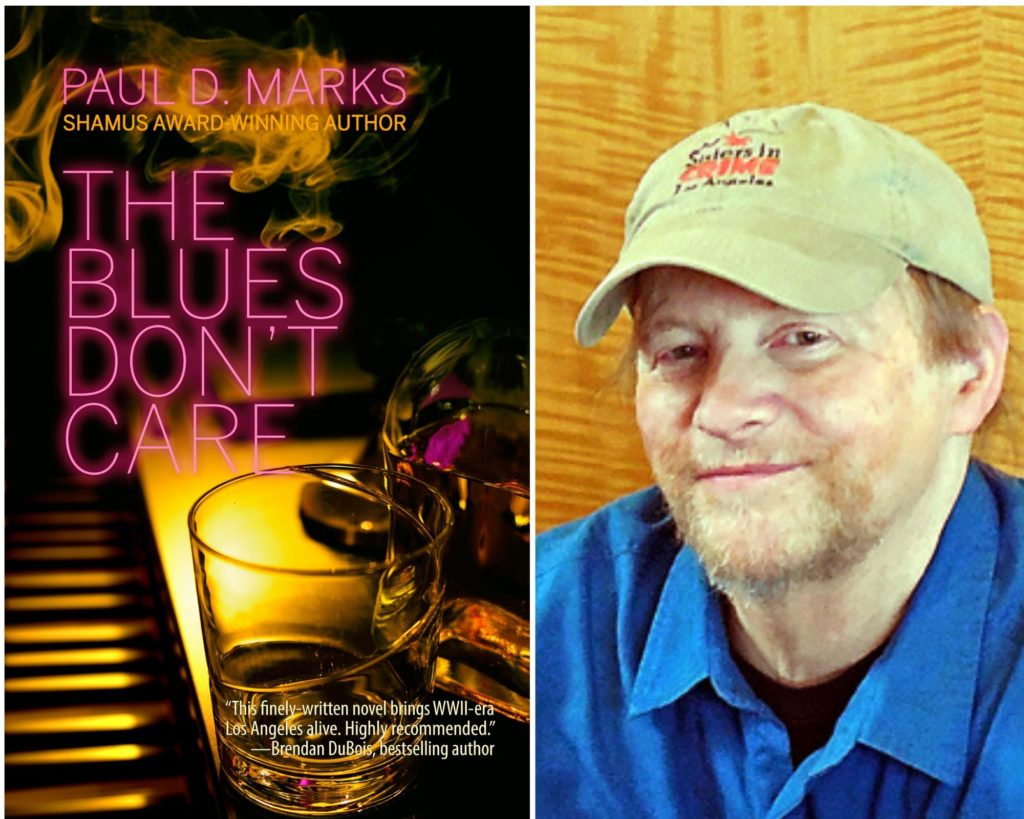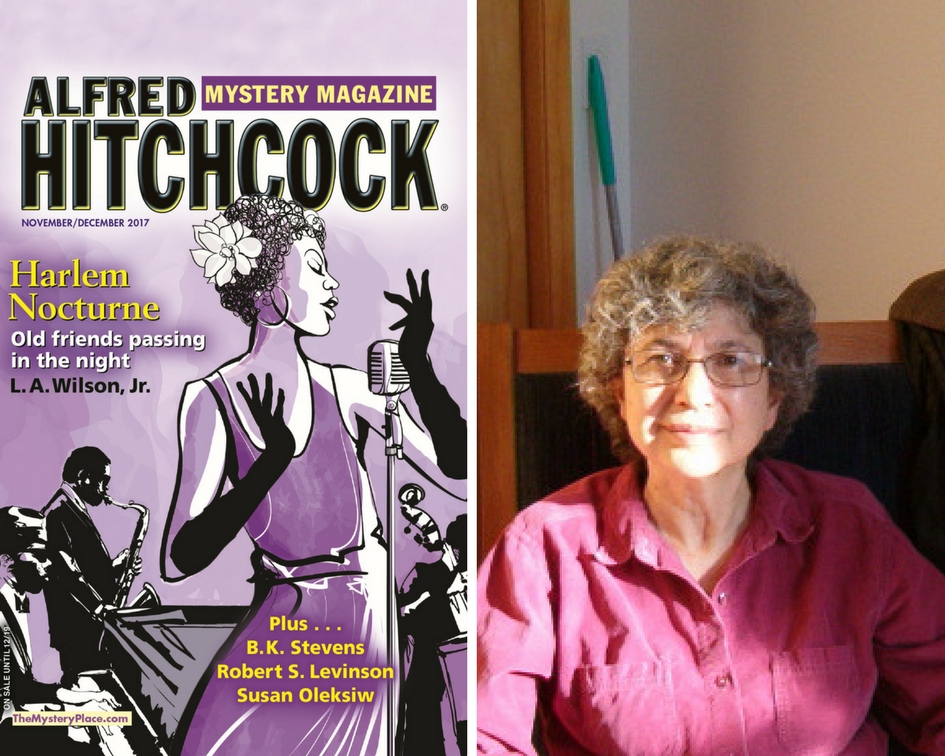In April 2015, B.K. Stevens debuted the blog series “The First Two Pages,” hosting craft essays by short story writers and novelists analyzing the openings of their own work. The series continued until just after her death in August 2017, and the full archive of those essays can be found at Bonnie’s website. In November 2017, the blog series relocated to my website, and the archive of this second stage of the series can be found here.
This week marks the publication of Paul D. Marks‘ new novel, The Blues Don’t Care, set in Los Angeles during World War II and focused on a white jazz musician in an all-black swing band—a musician who steps up as detective when one of his band members is falsely accused of murder. Advance praise on the novel is already strong, with novelist Michael SEars noting, “Paul D. Marks finds new gold in 40’s L.A. noir while exploring prejudices in race, culture, and sexual identity. There’s sex, drugs, and jazz and an always surprising hero who navigates the worlds of gambling, music, war profiteers, Jewish mobsters, and a lonely few trying to do the right thing. Marks has an eye for the telling detail, and an ear that captures the music in the dialogue of the times. He is one helluva writer.”
I first “met” Paul when he and I were fellow bloggers at Criminal Minds, and then later at SleuthSayers as well, and it was his blog posts that first made me a fan of his writing: thoughtful, reflective, carefully constructed, regularly digging deep into whatever subject they tackled. Those same qualities are the hallmark of his fine fiction, and in addition to his novels (his White Heat won the Shamus Award), he’s a tremendously talented short story writer as well, with “The Ghosts of Bunker Hill” earning the top spot in Ellery Queen’s Mystery Magazine‘s 2016 Readers’ Poll.
I’m looking forward to Paul’s new novel, and I hope you’ll enjoy this glimpse below at The Blues Don’t Care as well.
Please use the arrows and controls at the bottom of the embedded PDF to navigate through the essay. You can also download the essay to read off-line.
Marks-Blues-Dont-Care


Thanks for your comment, Pamela. I’m glad you stuck to your guns and did what you thought worked best for your story. Sometimes we have to compromise and sometimes we fight.
Two authors who read my draft advised me not to use a prologue, but instead to turn it into a chapter. That didn’t feel right to me so I kept with the prologue, and concluded with an epilogue. Introduction and wrap. It worked for me, and worked for the story arc. I’ll do that again with the next novel in a planned trilogy.
I like that phrase “introduction and wrap”–and yes, what works best for the story arc, that seems the most important. Thanks for the comment!
Thanks for your comment, Pamela. I’m glad you stuck to your guns and did what you thought worked best for your story. Sometimes we have to compromise and sometimes we fight.
I think prologues can work well under the right circumstances. I’ve read that agents and editors think they’re dated, but I don’t feel that way. Paul, congrats on the new novel!
Agreed, Jacqueline!
Thanks for your comment, Jacqueline. I also don’t feel that way. Is it better to have a first chapter that really doesn’t flow totally with the rest of the book? I fought for my prologue and hope it was the right choice.
When a prologue works, it works. Same with an epilogue or flashback. Sometimes that is the best way to tell a story whether it’s in a book or movie. I’d say let the reader decide in the long run. If the reader buys another book from that author, it must have worked. We all like different things and we all can try different things. That’s why there are so many books out there. I personally like prologues. They let me know the story has a history.
I think it’s too easy for agents or editors or even the authors themselves to feel like there’s a yes/no to everything—no exceptions. But that seems too narrow an outlook to me….
Thanks for your comment, Gayle. And I agree with you and Art. Sometimes people look at things in too narrow a way.
Prologues can be done well, but they need to serve the story. It sounds like you did yours well, Paul. The various edicts come about because some writing practices are easy to do badly, and hard to do well. Best wishes for a successful launch.
Art, thanks so much for continuing Bonnie’s First Two Pages.
What serves the story best–that’s a key way to approach all of this. Thanks, Maggie!
Thank you for your comment, Maggie. I agree, they need to serve the story. But some people seem very rigid, as if the word has come down from the heavens.
Thanks again for having me, Art. I really enjoyed exploring this topic.
Thanks for the great essay!